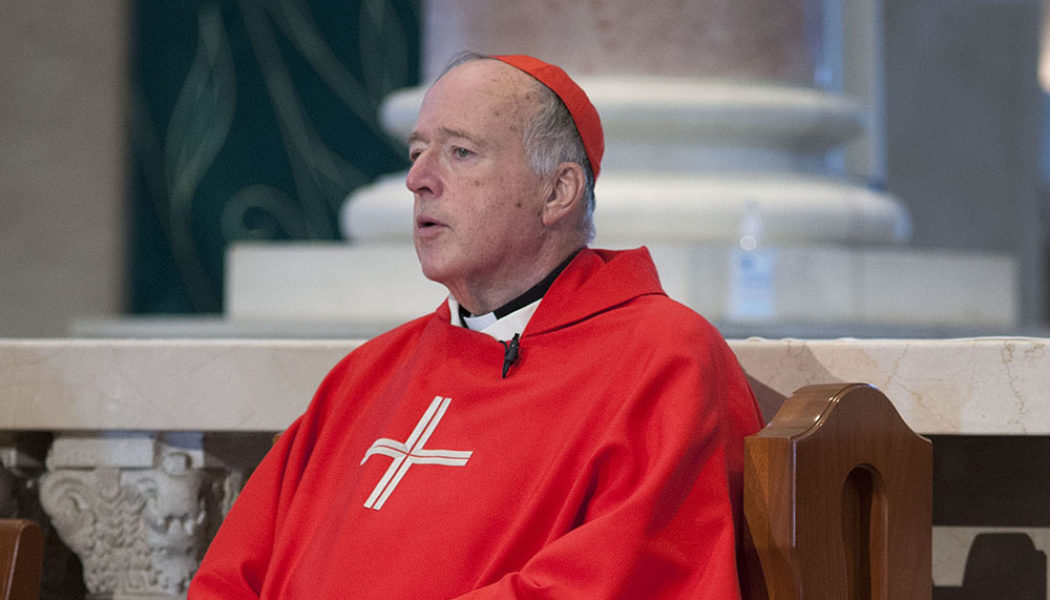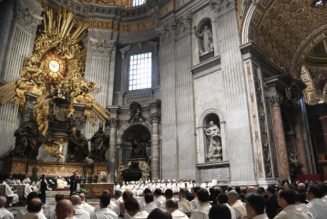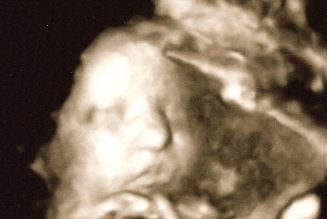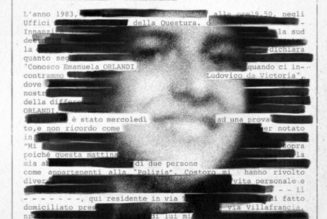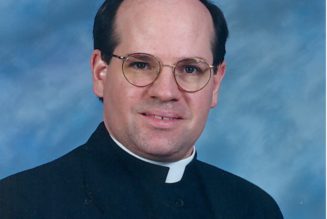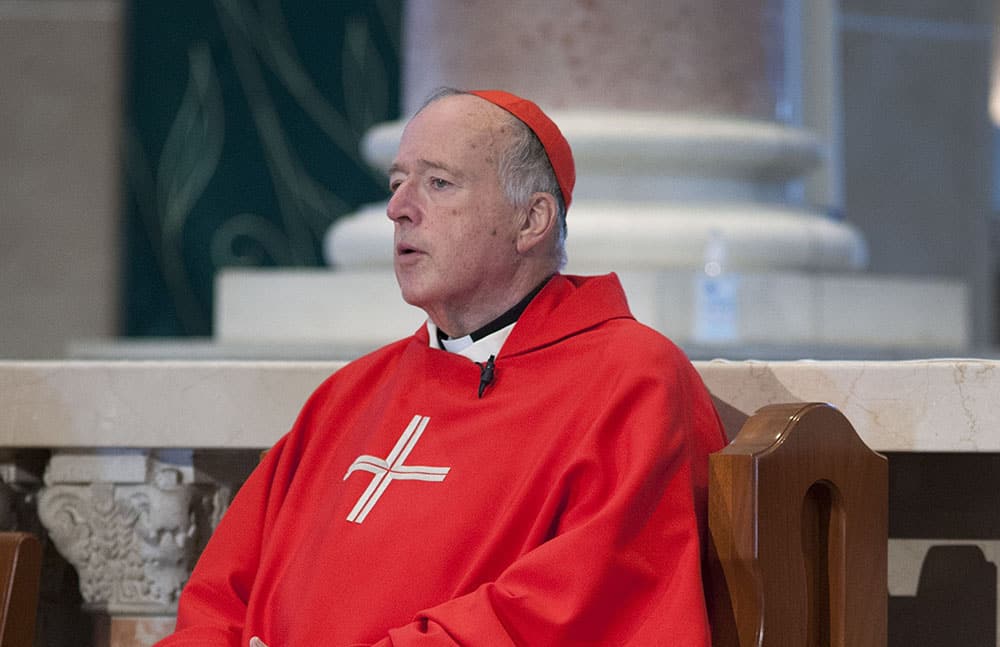
Cardinal Robert W. McElroy of San Diego celebrates Mass on the campus of the University of San Diego during Mass at The Immaculata Catholic Church Sept. 8, 2022. (CNS photo/David Maung)
Cardinal Robert W. McElroy, bishop of San Diego, in his widely contested recent essay in America Magazine, wrote, “The heart of Christian discipleship is a relationship with God the Father, Son and Spirit rooted in the life, death and resurrection of Jesus Christ.” But the rest of the essay makes me think of the question posed in the famous fast food commercial from my youth: “Where’s the beef?”
In his 3,000-word commentary published Jan. 24, Cardinal McElroy expresses many important laments that pertain to the Church’s life and mission today, many of which should be of concern to each one of us. He is right to bemoan the deep-seated polarization, not just in society, but in the Church, too. He is right to decry racial injustice in our society and Church, to call out a widespread hesitancy to allow the laity to truly live their baptismal call, to reject exclusion of women from roles of leadership, and to reject exclusion of those on the margins. He also rightly reiterated that the hinge of Christianity is our relationship with God in Christ.
But his proposed wish list for an ecclesial “conversion” of “radical inclusion” — a call to “reforming our own structures of exclusion” — doesn’t actually talk about real conversion. Missing is a crucial invitation to follow Christ, the Way, the Truth and the Life. Missing is the necessary push toward cooperation with grace and obedience to Christ that defines the Christian life. Without those, how can we, like St. Paul, allow Christ to dwell in us?
That is why it is regrettable that Cardinal McElroy’s essay — itself symptomatic of a clericalist mentality that is tempted to think so little of the people in the pews that the call to conversion is muted — presents a twisted inversion of one of the hallmarks of the very Vatican II he invokes: the universal call to holiness. Nothing is mentioned of it, either, despite the fact that it is the primary measure by which we live Christ’s life.
As the late Cardinal Francis E. George, OMI, once noted, “The major task of the bishop is to look for the saints and encourage them.” But instead of a call to holiness, Cardinal McElroy’s call for “conversion,” among other things, guts the Christian moral life and diminishes the Church’s sacramental discipline. His proposals to help the Church overcome his litany of injustices — yes, many which do indeed tug at our credibility and effectiveness in mission — are bound up in the nebulous, obscure and undefined concept of synodality. This is a tragedy, for crying foul, while never identifying the cause nor remedy, is not a solution. There can be no proper synodality, no proper dialogue that will bear real fruit, if Christ — and conversion to him — isn’t the origin, aim and center of it all.
Amid his long list of laments, not once does Cardinal McElroy lament sin, or offer much by way of overcoming it. The very sources that Cardinal McElroy states ought to define us — “the call of Christ, the apostolic tradition and the Second Vatican Council” — all speak in unison that virtue and holiness are the keys to overcoming the effects of men’s sins in the world. “Christ is the Light of the nations” begins Vatican II’s Lumen Gentium. Does the Divine Illuminator merely cast a spotlight on us in our woundedness and weaknesses, and in our sin? “Christ was sent by the Father ‘to bring good news to the poor, to heal the contrite of heart,’” the conciliar text states. How can the Divine Physician possibly heal if we don’t have the humility to acknowledge and identify the illness? Christ is the “Divine Teacher and Model of all perfection” — Lumen Gentium’s words — who “preached holiness of life to each and every one of His disciples of every condition” and “stands as the author and consumator of this holiness of life: ‘Be you therefore perfect, even as your heavenly Father is perfect.’” This is missing from Cardinal McElroy’s arguments.
The Church is, as Cardinal McElroy observes, greatly divided. But unity only comes in Christ, with Christ and through Christ. Unity without Christ is impossible. He is the way, the truth and the life.
Truly knowing this and believing that Christ is the Way, the Truth and the Life means that he alone is the means to make our way out of the quagmires created by our own sins.
Christ alone is the way we must follow. His Gospel calls us to radical welcome, yes, but to be welcomed on Christ’s terms and no one else’s. To think all are welcome while the call to conversion need not apply is simply not the way of Christ.
Christ alone is the Truth to which we must adhere. To pretend that Christ’s teaching is up for discussion or for reevaluation, to think that the Holy Spirit might suddenly contradict himself in light of what society now considers sacrosanct, to think we need to catch up with the world rather than show it a better way, is to see Christ no longer as the Truth. What is to unify Christians if some decide his truth no longer applies?
And Christ alone is the Life we are called to imitate and reflect to the world. If we believe Christ has been alive and active in the Church these two millennia since his resurrection, how can we even begin to entertain the notion that he is now calling us to be something other than what he’s always called us to be? As our Life, Christ shows the way of obedience, the only way of living that matters.
Without a frank acknowledgment of sin and its consequences, and without the recognition that virtue and holiness are sin’s only remedies, how can we honestly dialogue with each other and accompany each other? Without those basics uniting our approach to synodality, we end up driven further apart. Without Christ as Way, Truth and Life, how can we accomplish anything meaningful for the life of the world?
And this gets us back to where we began. It isn’t enough to simply invoke the name of God; we must follow him. Cardinal George, when president of the U.S. bishops’ conference, made this connection well in his last address to that body in 2010: “Orthodoxy is necessary but not enough; the devil is orthodox. He knows the catechism better than anybody in this room; but he will not serve, he will not obey.”
Michael R. Heinlein is editor of OSV’s Simply Catholic and author of Glorifying Christ: The Life of Cardinal Francis E. George, O.M.I. Follow him on Twitter @HeinleinMichael.
